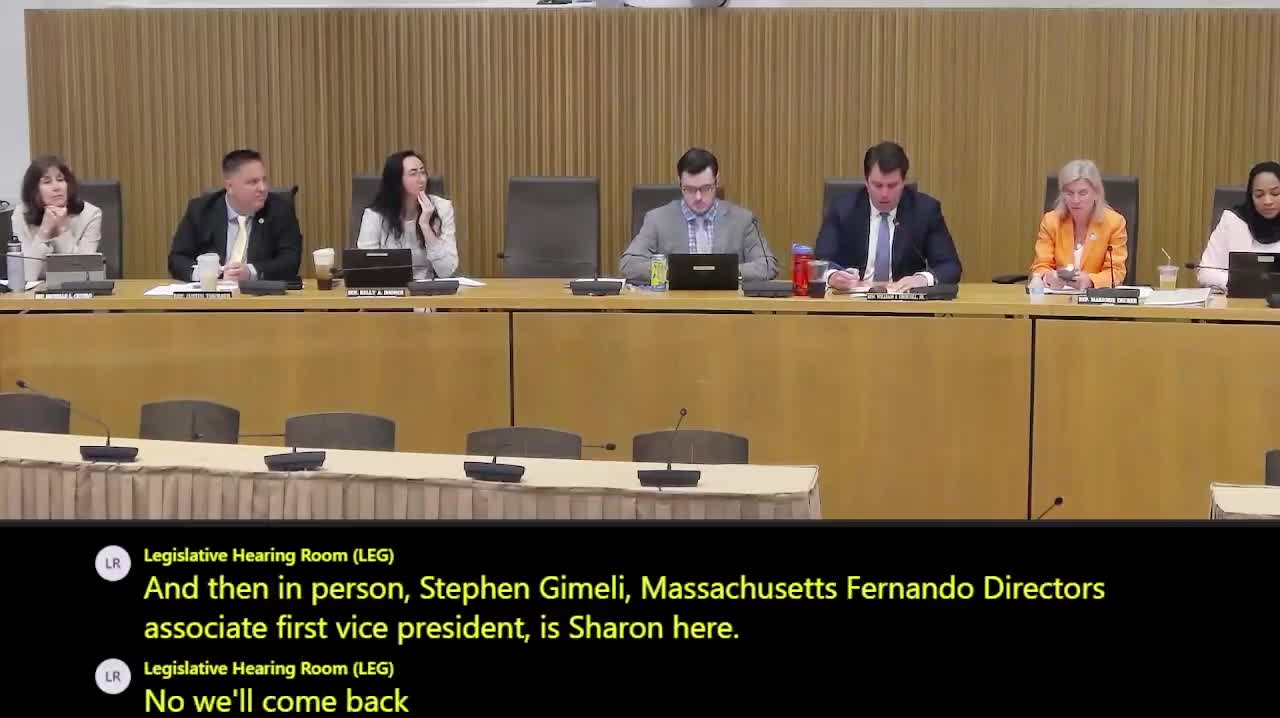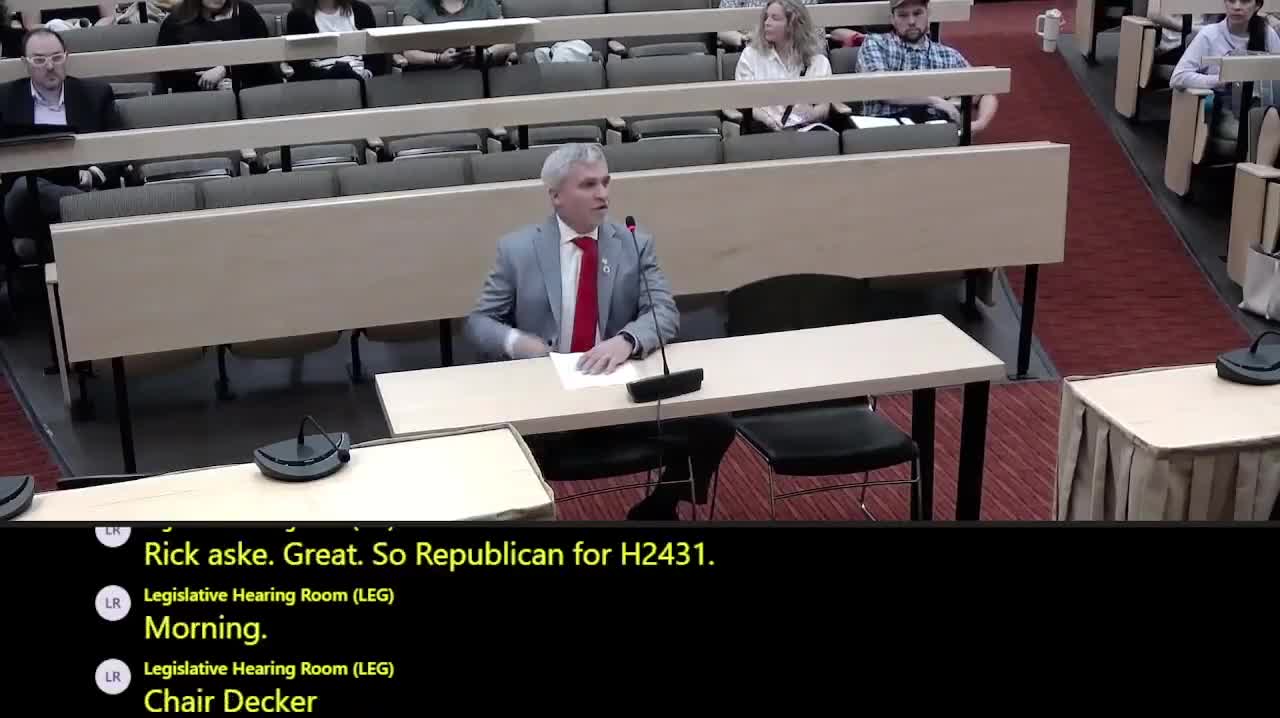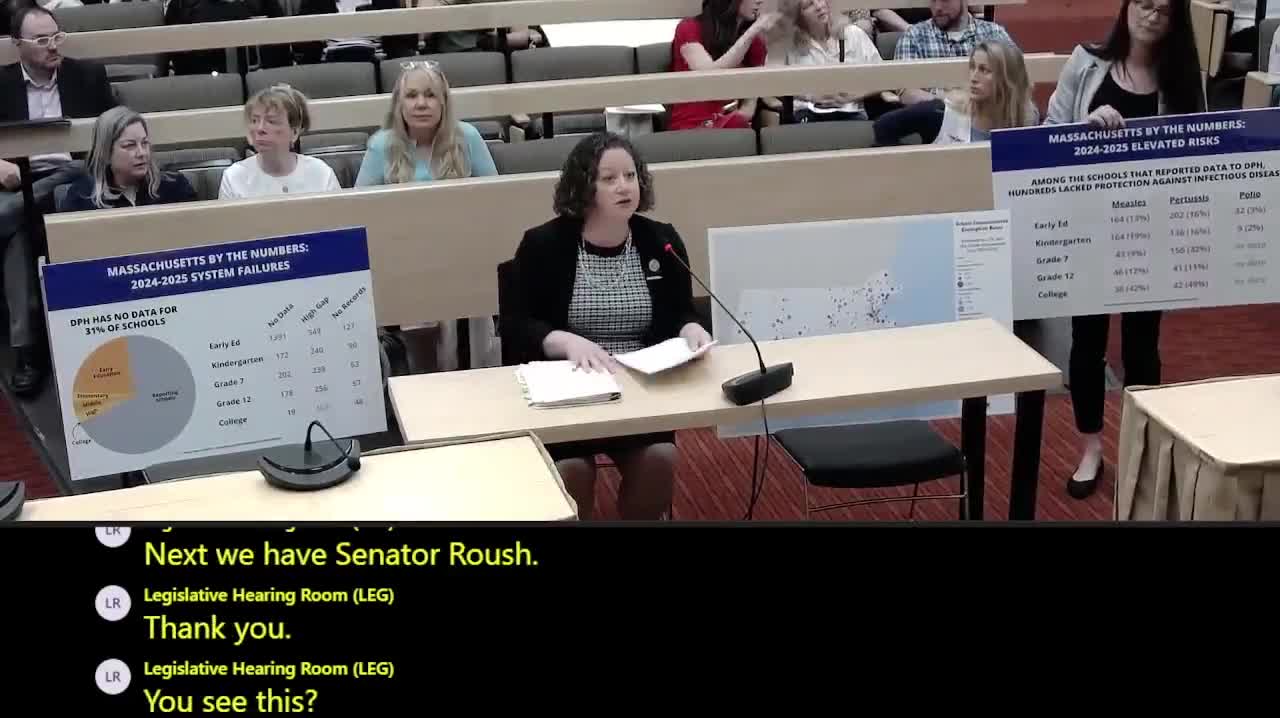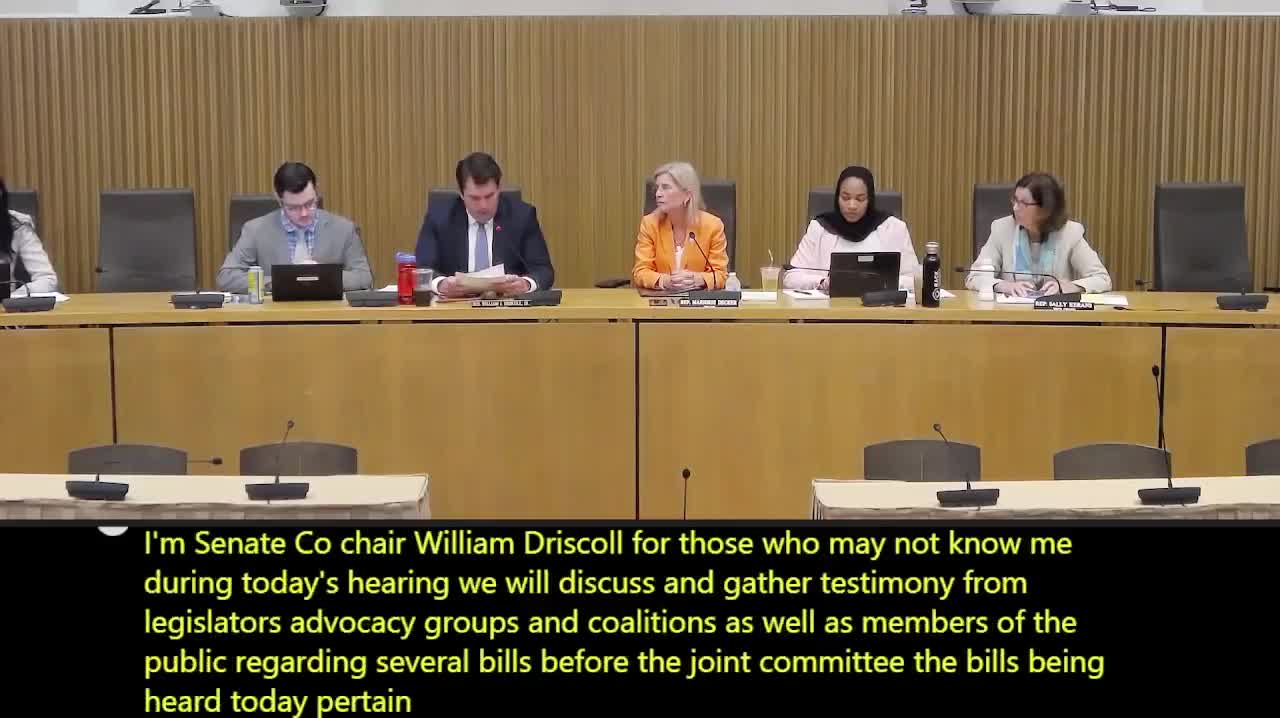Article not found
This article is no longer available. But don't worry—we've gathered other articles that discuss the same topic.

Massachusetts funeral directors ask for public-health worker status; committee hears logistical case

Advocates for 'no COVID mandate' bill urge protections; state health experts warn of public-health tradeoffs

Centralized 'Community Immunity' plan draws legal, parental concerns at Massachusetts hearing

